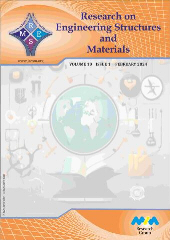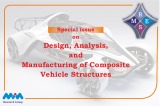Research Article
Effects of rattan fiber length variation on mechanical properties, characterization, and microstructure of concrete
Andi Yusra1, Zakia1, Surya Perdana1, Fachruddin Fachruddin1, Teuku Budi Aulia2
1Department of Civil Engineering, Teuku Umar University, Meulaboh, Indonesia
2Department of Civil Engineering, Syiah Kuala University, Banda Aceh, Indonesia
Keywords
Abstract
Microstructure;
Characterization;
Fiber concrete;
Concrete strength
The study aimed to test how variations in fiber length affect the behavior of microstructures in concrete, as well as to characterize and analyze their mechanical properties. This research covers several specific objectives, including understanding the influence of different fiber lengths on micro and macrostructural aspects of concrete, assessing the mechanical properties of reinforced concrete with fibers of various lengths, and examining the relationship between fiber length and the mechanical performance of concrete. The results showed that the addition of rattan fibers in concrete can increase or even reduce tensile strength depending on the length of the fibers and their material characteristics. The addition of rattan fibers with a length of 30 mm results in a significant increase in tensile strength, while longer or shorter fiber lengths do not yield equally favorable results. Analysis of the chemical composition of concrete shows that the elements oxygen (O), calcium (Ca), and silicon (Si) predominate, with the addition of carbon (C), iron (Fe), aluminum (Al), magnesium (Mg), and Sulphur (S) elements in concrete with rattan fibers. Morphological observations using SEM on concrete, both with fibers and without fibers, provide an in-depth understanding of the structure of concrete surfaces microscopically.
© 2024 MIM Research Group. All rights reserved.


